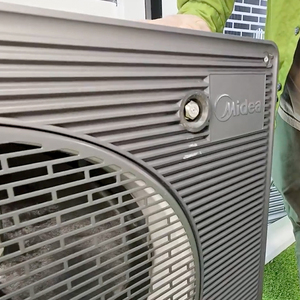Utility Company Overvoltage to House
Checked my answering machine while on vacation, message from Fire Dept captain that utility company had cut off electrical service to rental house. Needed to have electrical service inspected by licensed electrician, signed off by city inspector, and then reconnected by utility crew.
Got that done 1800 miles away (another story) and now picking up the pieces. The transformer servicing approximately 45 houses had a loose neutral, and the houses ended up with a diet of 240v. All houses had some loss, TV’s, microwaves, computers, dvd-etc. My loss was 2 boilers for heating (not an issue immediately).
The utility company is denying all claims, citing a “loss of service” clause in the in their tarriff.
In researching the problem, I learned the bucket truck crew asked if the water line was replaced, and it was about six years ago. It seems the procedure for hooking up the water service involves a non-conductive spool piece which negates the house ground to water line. In turn the transformer neutral is overloaded and fails. The reason for the electrical inspections was to ascertain the ground efficacy.
My questions to you all is: any idea how common this is? have you heard of any utility reimbursing for sustained overvoltage? is there a protective device or control to protect against a failed neutral?
I plan on having ground rods installed in my rental properties, but I am a little peeved at the moment.



















Replies
The electric utility here sometimes traces underground primary wiring by disconnecting everyone from it and then sending surges of power down the line that can be traced using some sort of detector gadget. They did this and forgot to disconnect my neighbor's double-wide, and blew up all of the wiring and some appliances inside. They bought them an entire new trailer and new appliances. A little different than your story, I guess, but yeah they were on the hook for that one.
"It seems the procedure for hooking up the water service involves a non-conductive spool piece which negates the house ground to water line. In turn the transformer neutral is overloaded and fails."
Either you are misunderstanding what was said or someone does not know what they are talking about (to put it in terms that won't get me banned).
The ground electrode system is NOT DESIGNED TO CARRY NETURAL CURRENT.
The neutral from the house to the transformer should be sized to carry the total load.
I can't answer your question. But ... I visited a house to work up a price to assist the electrician in re-wiring the whole place, plus some upgrades. A transformer went out in a small town, city owned utility. The bozo that replaced the transformer, a city employee, wired it backwards so that the juice was stepped up rather than down. Fortunately there wasn't a fire, but it fried almost everything in the house, and several of the outlets were black and out of shape. The city agree to pay for the repairs.
"When asked if you can do something, tell'em "Why certainly I can", then get busy and find a way to do it." T. Roosevelt
the first thing they would do is deny any claim... your insurance should cover it... and if it's a large enough loss... they'll get their money back from the electric co...
If you don't have insurance I'd find a lawyer to write a nice letter... IMHO you buy good power on faith that they will deliver good power... if they have a problem and deliver you bad power... they can disclaim it all they want... but... it think they are still on the hook for it
p
is disclaim a word?
"The transformer servicing approximately 45 houses had a loose neutral, and the houses ended up with a diet of 240v."
I don't understand how this would make the houses 240V unless all of their 110 were three-wire circuits.
Two-wire circuits should simply not work without a grounded wire, wouldn't they?
Even three-wire circuits should still have a grounded neutral even if the house ground were not bonded to the PC's transformer neutral, wouldn't they?
If the house service panel is not grounded due to a dielectric union of some sort, It would have to be operating at nearly rated capacity to overload the utility's neutral wire to the point of failure, wouldn't it?
BruceT
"If the house service panel is not grounded due to a dielectric union of some sort, It would have to be operating at nearly rated capacity to overload the utility's neutral wire to the point of failure, wouldn't it?"As I already said the ground SHOULD NOT BE USED AS A NEUTRAL.The person that said that did not know what he was talking about (or it got lost in translation)."I don't understand how this would make the houses 240V unless all of their 110 were three-wire circuits."120/240 is supplied by a 240 volt transformer with a center tap (neutral).If the center tap is open then you still have 240 between the two hot legs. For 120 voltage load some connect from leg to the nuetral BUS and some from the other hot to the neutral BUS on the panel.Thus the 120 volt loads are in series across 240 volt source. If the loads that are in use at any one monment are not equal the one will have low voltage and the other hight."Even three-wire circuits should still have a grounded neutral even if the house ground were not bonded to the PC's transformer neutral, wouldn't they?"Again the ground is not designed for a return.By code a ground rod can have at much as 25 ohms resistance. And the failure could have been on the transformer center tap so that not only the neutral, but the ground connection would be lost on the transformer.
It seems the procedure for hooking up the water service involves a non-conductive spool piece which negates the house ground to water line. In turn the transformer neutral is overloaded and fails.
As Bill alluded to, this is BS. The house Ground Electrode Conductor normally has zero current flowing through it, so whether it is there or not has no effect on the current flowing through the neutral to the transformer. 'sounds like a case of attempting to deny liability, and making something up.
Also, denying claims due to "loss of service" is ridiculous. You didn't lose service, you had defective service that resulted in up to 240V being applied to some of your 120V circuits (what happens with a loose neutral). This is a similar situation to, say, a line cross to a primary voltage: your house gets zapped; it's due to their screw-up; it's their fault.
I'll chime in a ditto Barry and Bills' statement.
I'll also add that I work for a POCO, and we would be on the hook for all the damage our failure caused.
Call your state public service commission and request an investigation. Find out who is the regulatory authority and get the verdict from them, not the power company!
Your state attorney generals office should also have a consumer protection division that may also want to investigate the problem.
You are not responsible or liable for a screw up of the power company's equipment. No matter how "deregulated" you states energy policy is, there are still regulations in place about public safety and service reliability.
The POCO screwed the pooch on this one and is trying to dodge 45 bullets.
Dave
I did call the state public service commission and asked to speak to someone on how to interpret the Rochester Gas and Electric tarriff. I was told to go to the library and ask for their copy and to read it for myself. Actually it was available on the net, only 311 pages. Fed it to the laser printer. Then called my state assemblyman and asked to speak to their PSC specialist. Still waiting for a call back.Interestingly there is a clause in the tariff granting relief to the utility company for incidents due to their negligence, because of the highly specialized nature of their product.It is pretty clear the PSC is on the take and the utility (RG+E) is running free. To all: I thank you all for the time to read my woe and reply. Will keep you all updated as the research and progress grinds on.
In cases like this the perception of injustice is so powerful that your best option is often to try your case in the court of public opinion. This can be a very powerful option. My brother was harassed for years by the state of Washington which claimed that he was responsible for the hospital bills of some guy who fell out of a tree (while trimming it). State employees were calling him at 3:00 AM to demand payment. My brother had never even met this supposed victim let alone employed him. He was being accused of running illegal logging operations while never having owned a chain saw in his life. Lawyers and legislators were completely ineffective! In desperation he thought to call the local TV station. They sent a truck right out to interview him and requested interviews with the head of the agency involved too. Suddenly apologies were flying and the problem was dying. Nearly an instant solution. You might want to keep this idea in the back of your mind in case you need it.
"My questions to you all is: any idea how common this is? have you heard of any utility reimbursing for sustained overvoltage?"
Had sustained +140 volts due to defective transformer, kept replacing light bulbs etc until I checked the line voltage on a whim, called Ga power on a saturday afternoon and they replaced the transformer within 2 hours. They also paid around $1100.
Richard P. Feynman